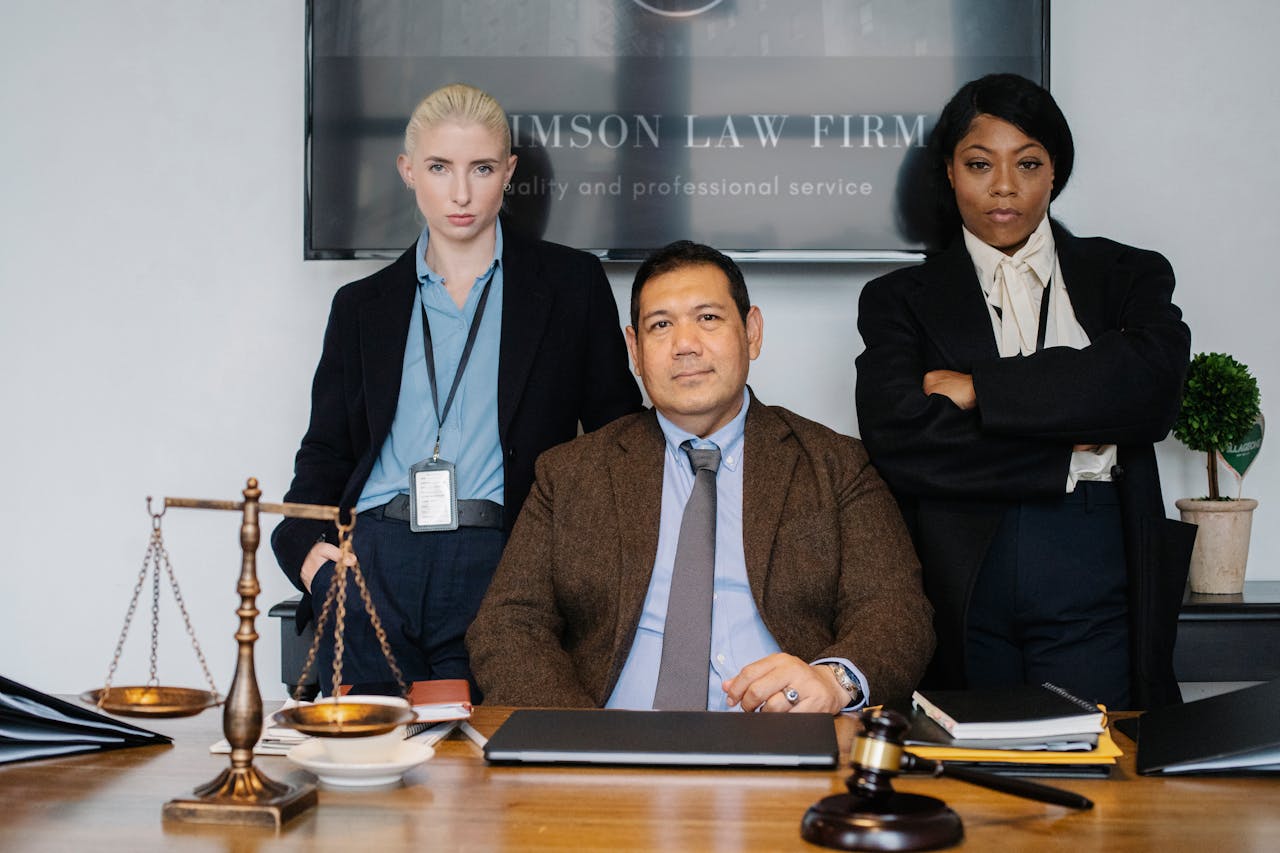When did you know law was the career for you?
When I started university, I had in fact planned to go into business management. I was doing a conjoint degree in commerce and law (B.Com/LLB) majoring in finance and economics and had a keen interest in global commerce. About three years into my studies, I was getting increasingly absorbed in my law papers. At this point, I took some time out to do something very different, driving snow-groomers on the 1998 Winter Olympic ski fields in Nagano, Japan. I arrived in Tokyo in 1991, when the economy was at its giddy heights and was there as the bubble burst. It was fascinating, and sobering, to watch first-hand as such a dramatic part of recent economic history unfolded. While enjoying the (at that time) undiscovered and untracked powder snow heaven of the Japanese Alps, I reflected on where I wanted to be later in life and what I valued in a career. It was then I decided I wanted to go into law.
I also had a strong interest in innovation and what drives entrepreneurs, because ultimately it is the spirit of invention and entrepreneurship that has lifted humanity out of living in caves, launched us into space and much more that would have been unimaginable to times gone by.
How did you decide that Antitrust and Competition law was what you would specialise in?
From the time I was in high school, I had been fascinated by political economy. In university, I discarded the prescribed textbooks in favour of reading the seminal works of leading philosophers, political economists and jurists. I soon discovered that a textbook summary, however well written, cannot match the richness of the actual words of the great thinkers in history. Conscious of the need to pass my exams, but keen to exploit this discovery, I took elective papers in economic history, legal history, and comparative law.
While in Japan, I also started studying the history of the zaibatsu (now keiretsu), the famous Japanese conglomerates, and how they grew to have such an important role in the economy likewise, the history of the hongs and other conglomerates that underpin the success of Hong Kong. I also had a strong interest in innovation and what drives entrepreneurs, because ultimately it is the spirit of invention and entrepreneurship that has lifted humanity out of living in caves, launched us into space and much more that would have been unimaginable to times gone by.
I became absorbed in the trade war at the time between the United States and Japan and the question of whether there should be heavier antitrust enforcement against the keiretsu. Linked to that, I also started providing input to the Pacific Economic Cooperation Council's project to develop a Competition Principles document for adoption by APEC. I found this work fascinating because it allowed me to consider competition policy across the APAC region.
I saw antitrust enforcement sometimes colliding with economic theory.
Adam Smith has always had a strong influence but so have authors like Israel Kirzner, who, in my view, deserves a Nobel prize for his work on competition, entrepreneurship and the price system. Kirzner raised fundamental questions about the role of prices in conveying critical information and acting as a signal to market participants, allowing markets to properly coordinate. This area deserves more study as we see competition regulators expanding information exchange prosecutions into complex trading markets. I was also influenced by writers like Bruno Leoni, who gave a unique perspective to the intersection of law and economics.
Understanding the legal and economic issues that are at play gives a deeper perspective to fundamental debates in competition enforcement. Is it right to compel a company to grant a competitor access to its facilities (or, more recently, data)? Is there a sound basis for trying to intervene in modern technology markets, which are driven by extremely high levels of innovation, if economic theory has limited power to model what is going on in those markets?
I saw antitrust enforcement sometimes colliding with economic theory. It is this inherent tension, and the sometimes ill-informed prosecution of entrepreneurs, that led me to get into competition law.
I was then lucky in my earlier career to be involved in some of the larger competition law access cases in New Zealand flowing from the privatization of key infrastructures such as the air and sea ports. From there, I moved to Australia, where I was fortunate to have a leading role in what remains to this day the largest competition trial to go through the Australian courts. When I moved to Hong Kong, cross-sector competition law was still not on the horizon. But I was again lucky to have a role that allowed me to work across the region, on everything from the then nascent China merger control through to abuse of dominance cases in Indonesia and the numerous telecoms and broadcasting competition cases under Hong Kong's then sectoral competition laws.
Teamwork is critical. But I have come to appreciate that, ultimately, achieving things of consequence requires the acceptance of personal responsibility.
Can you share your journey into making partner? What challenges came your way?
Everyone has a different journey. For me, I changed jurisdictions three times; this made it a long road. But I made decisions along the way that reflected what I was most interested in and where I wanted to be in the long term, in the heart of Asia, in one of the most dynamic cities in the world.
I would say to others that it is important not to focus on partnership in itself as some kind of abstract end-point. Think about what you want, what motivates you and what will give you lasting fulfilment.
What mottos have you learnt and lived by during your legal career?
Teamwork is critical. But I have come to appreciate that, ultimately, achieving things of consequence requires the acceptance of personal responsibility.
Since I was young, I have been mountaineering, extreme skiing, and, a bit later in life, big-wall rock climbing on multi-pitch faces. Hobbies like this require you to think about how you make decisions and assess your abilities. If you misjudge, the consequence is often fatal. I have been in situations where I say 'no, this is not for me', and I have seen the consequences when others make a wrong decision. At the same time, I have taken lines that others would never dare to take, because I knew I could do it. This teaches a crucial skill in making decisions in a risk environment, which is essential in the legal environment.
In leadership, you have to take responsibility for what happens. Good or bad, it happened on your watch. To me, leadership is about having the personal strength to realise that, to face up to the most challenging situations and to find a way through.
I have always wanted to be on the most complex cases, to be trying to solve what looked like impossible problems for clients.
Asia is enormously diverse. We have a mixture of common law, civil law, free market, mixed market and centrally planned economies and numerous ethnic, religious and political diversities within that.
I get very personally invested in cases, because I believe that lawyers, as fiduciaries, owe particular obligations to their clients (and to the broader institution of the law). When people place their trust in you, you need to deliver, not just go through the motions.
But more than that, I passionately believe in the rule of law. I see it as the most essential cornerstone of our society.
What do you value most about becoming the Chair of Baker McKenzie's Asia-Pacific Antitrust & Competition Group?
For me, it is a real privilege to have been trusted with this role. It is a unique team. We have the largest geographic footprint in Asia with a team spread across Australia, China Mainland, Hong Kong, Indonesia, Japan, Malaysia, Myanmar, Singapore, Taiwan, Thailand and Vietnam. The firm culture has, since the firm was founded in 1949, been firmly rooted in friendship, collaboration and diversity. These are the factors that define my role and which also make it so enjoyable. One of the highlights of the job is talking with our teams around Asia about their competition policy, the legal framework and how competition law is being enforced on the ground in their local jurisdiction.
I have also been in a privileged position to meet and work with the antitrust practitioners across the region and to support and provide guidance to the excellent young talent we have across the Asia Pacific - helping them develop in their careers and providing them with opportunities to profile themselves both in their markets and more widely across borders.
What challenges does this role present and how do you overcome them? What aspects of this role took you by surprise?
Asia is enormously diverse. We have a mixture of common law, civil law, free market, mixed market and centrally planned economies and numerous ethnic, religious and political diversities within that. Not surprisingly, the competition law frameworks across the region are equally diverse, presenting a rich tapestry of approaches and influences.
Engaging at a legal and policy level requires an appreciation of the diversity and sensitivity to local market circumstances. The Asian competition law landscape requires adaptability and a preparedness to look at the same issue from numerous different angles. Thankfully, I am supported by a fantastic team of antitrust practitioners across the region who have grown up in, and have an intimate understanding of, the policy and legal environment in which we operate. This allows us to successfully navigate the most complex competition law challenges on the ground across the region.
Most importantly, if you start in the law and give it a fair shot, then realise it is not for you, do something else.
Can you share some tips for aspiring legal students on how best to work up the legal ladder?
Don't pre-judge - the hardest thing for me coming out of university was to understand what it would really be like in a law firm, an accounting firm or other industries that I looked at, like oil & gas, telecoms and the military.
In antitrust, I get the opportunity to work with a broad range of industries. From merger clearances through to compliance, we get to go behind the scenes and see so much of how the business works and how products and services are brought to market.
This has allowed me to reflect on some of the misconceptions I had. Jobs and areas of law I thought would be mundane actually turned out to be extremely interesting, but I was also able to put my own job in perspective and realised it is what I love doing.
Most importantly, if you start in the law and give it a fair shot, then realise it is not for you, do something else. Find something you are passionate about. Conversely for those who come into the legal profession and enjoy it, follow your passion, persevere. Things that are worth doing in life are not usually an easy road. A challenging career comes with roadblocks and what sometimes look like insurmountable challenges. You need to enjoy the job if you want to overcome these and to succeed.
Being chair does not give the power to direct and command outcomes, only the opportunity to have a potentially broader view of the practice and provide directional influence.
I also frequently remind myself of the advice I received from the senior partner when I joined a law firm many years ago. Keep a strong moral compass. Law is a difficult profession. It throws up many personal and professional challenges, personal sacrifices, complex conflicts and difficult judgment calls.
Finally, what are your three top tips on becoming Chairperson?
It usually happens before you feel ready.
Embrace the challenge.
Being chair does not give the power to direct and command outcomes, only the opportunity to have a potentially broader view of the practice and provide directional influence. In a firm as diverse as ours, that is fun, teaches one a lot about different cultures and ways of approaching a situation and is immensely personally rewarding because it allows a better sense of the wonderful people who make our team what it is.
Stephen Crosswell
Head, Antitrust & Competition Practice
Asia Pacific
Stephen.Crosswell@bakermckenzie.com
+852 2846 2599
Highly acclaimed and Band 1 ranked Leading Antitrust Lawyer, Stephen Crosswell is the current Chair of Baker McKenzie's Asia-Pacific Antitrust & Competition Group.
Clients praise Stephen for his "years of experience working on competition matters". He is described as a "vital resource for clients seeking to navigate the nuances not only of the new local competition law regime in Hong Kong but also across other Asian jurisdictions – including China".




















